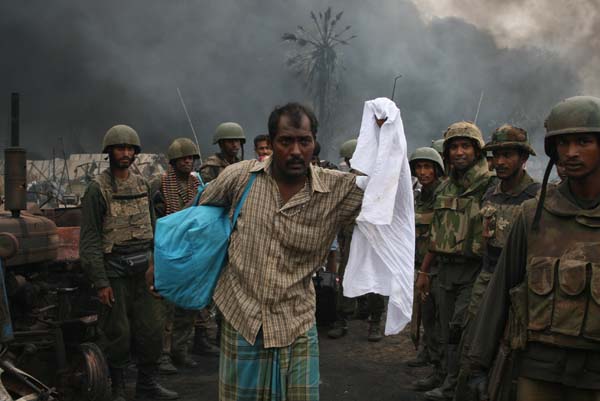Thousands rally in support of Mahinda’s PM candidacy
 |
|
(Photos: BBC Sinhala) |
Tens of thousands of supporters of former president Mahinda Rajapaksa staged a rally in Nugegoda, calling on him to stand as a prime ministerial candidate in elections later this year.
In a written statement, read out by former government official Dayan Jayatillake, Mr Rajapaksa said he could not ignore their wishes and will make a return to politics.
"What we are experiencing today is not a defeat but a result of a conspiracy," he said in the message. "I say firmly that I am in anyway unable to ignore the wishes of those of you who think about the country and are committed for the country."

